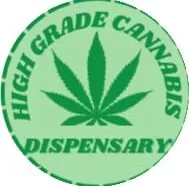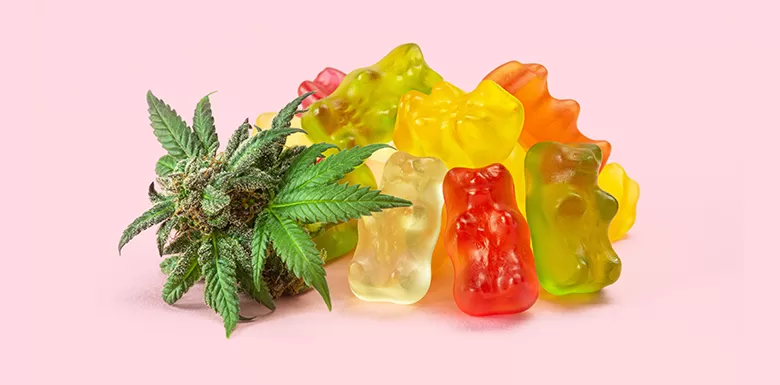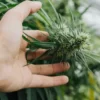What Are Edibles?
Edibles are food products infused with cannabis extracts or concentrates, offering a non-smoking method of consuming cannabis. They come in various forms, such as baked goods, candies, beverages, and capsules. Unlike smoking or vaping, edibles must be digested, so their effects take longer to set in—typically 30 minutes to 2 hours—but can last much longer. They provide a different experience compared to inhalation methods, with effects that may be more potent and long-lasting due to the way the body processes cannabinoids through digestion.
Cannabis edibles, including the classic weed brownie, have been a staple in the cannabis industry for decades. As legalization expands, many new users are choosing edibles over smoking as a safer alternative. However, it’s crucial to be aware of the potential side effects of edibles. This guide provides an in-depth look at what you can expect when consuming cannabis edibles.
What Makes Edibles Different from Smoking?
Traditional Smoking vs. Edibles:
Smoking cannabis involves inhaling cannabinoids directly into the lungs, where they enter the bloodstream almost immediately. This results in a rapid onset of effects but also exposes you to harmful substances like carcinogens and burned plant material. Over time, smoking can lead to respiratory issues and other health concerns.
In contrast, edibles pass through the digestive system. Once consumed, they are broken down by the stomach and intestines before entering the bloodstream. This process results in a slower onset of effects, typically taking between 30 to 90 minutes. The full impact of edibles can be felt 2-4 hours after consumption, depending on various factors such as individual metabolism and food intake.
Potency and Duration:
Research suggests that edibles have a lower bioavailability compared to smoked cannabis. This means that not all cannabinoids are fully absorbed and utilized by the body during digestion. Despite this, edibles often produce a more intense and prolonged high, which can last several hours longer than other consumption methods.
Factors affecting the potency and effects of edibles include:
- Diet and Metabolism: High-fat foods, like those made with canna butter, can enhance cannabinoid absorption.
- Body Mass Index (BMI): Individuals with higher BMI may process edibles differently, potentially affecting the intensity and duration of the high.
Short-Term Side Effects
Cannabis edibles can lead to several short-term side effects, similar to those experienced with other consumption methods:
- Dry Mouth (Cottonmouth): THC can reduce saliva production, leading to a dry, uncomfortable feeling in the mouth.
- Red, Dry Eyes: THC causes blood vessels in the eyes to expand, resulting in redness and dryness.
- Increased Appetite (Munchies): Edibles often amplify the “munchies,” increasing hunger and cravings, which can be either beneficial or problematic depending on your goals.
- Anxiety and Paranoia: Higher doses of THC can induce anxiety or paranoia, particularly in those with lower tolerance or predisposed to these feelings.
Most of these effects can be managed with proper hydration and moderation. Drinking water can alleviate dry mouth, and consuming edibles in a comfortable setting can help mitigate anxiety.
Long-Term Consequences
While many long-term effects are associated with smoking, edibles also have their own set of risks:
- Overconsumption: The delayed onset of edibles makes it easy to consume too much. Overeating edibles can lead to an overwhelming high, characterized by intense anxiety, paranoia, hallucinations, and nausea. This condition, often referred to as “greening out,” can be unpleasant but is typically not life-threatening.
- Potential for Dependence: Cannabis is not physically addictive, but regular use can lead to psychological dependence. It’s important to use edibles responsibly to avoid developing a habitual reliance on them.
- Impact on Youth: Research indicates that frequent cannabis use during adolescence can have adverse effects on brain development. This is particularly concerning as the adolescent brain is still maturing.
Mitigating Risks and Ensuring Safe Consumption
To minimize the risk of adverse effects from cannabis edibles, consider the following guidelines:
- Start with a Low Dose: Begin with a small amount of THC and wait at least 2 hours before consuming more. This approach helps gauge how the edibles affect you and prevents overconsumption.
- Consume in a Safe Environment: Enjoy edibles in a comfortable, controlled setting with friends or loved ones who can offer support if needed. Avoid activities that require full attention, such as driving or operating machinery.
- Stay Hydrated: Drink plenty of water to help counteract dry mouth and other side effects.
- Be Mindful of Potency: Pay attention to the THC content of edibles and adjust your intake accordingly. Different products have varying levels of potency, so understanding the product’s strength can help manage your experience.
By being informed and cautious, you can enjoy cannabis edibles responsibly and avoid unpleasant side effects. If you experience severe symptoms or have concerns about your reaction to edibles, seek medical advice promptly.
For premium THC edibles and other cannabis products, explore reputable sources like High Grade Dispensary, which offers a range of high-quality options to enhance your cannabis experience.



